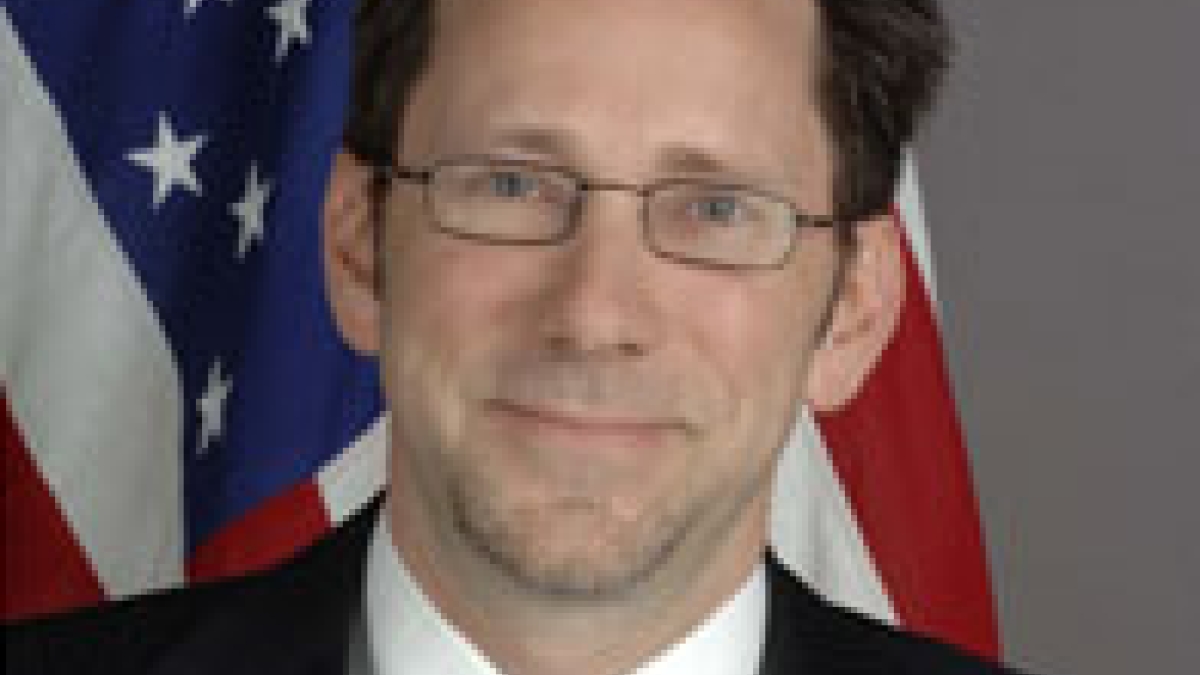Former Ambassador on War Crimes Issues Clint Williamson, now a professor of practice at the Sandra Day O’Connor College of Law at Arizona State University, explains the challenges in bringing Syria’s Assad regime to justice but also that there is hope for international courts’ ability to prosecute war criminals in the future.
Question: There is clear evidence of war crimes by the Assad regime in Syria, including the alleged use of chemical weapons on civilians, but will they ever be brought to justice?
Answer: The accountability process for the Assad regime in Syria is a challenging issue. Syria is not a member of the International Criminal Court, so the court has no means for exercising jurisdiction there without a referral from the U.N. Security Council. Because Syria has enjoyed Russian support, Russia will likely veto any Security Council action on the matter. Domestically, there’s no will from the Assad regime to confront any of these issues, so there is no domestic judicial process on the table. In the absence of a possible regional solution, what you’re left with is looking down the road for the chance that at some point in the future, the political dynamics within Russia or Syria or both have changed such that you can get the needed support for an investigation and a trial. Until then, the best we can do is gather and preserve evidence and documentation like photos and witness testimony.
Q: Yugoslavia is a case where the world was able to hold war criminals accountable. How big of a victory is that?
A: One of the most recent and positive developments from the ICTY — International Criminal Tribunal for the former Yugoslavia — was the conviction of Radovan Karadzic for genocide and other crimes. Karadzic was the president of the Serbian Republic and the political leader of the entire Bosnian Serb movement. He had a lot of blood on his hands. However, there has been criticism from people in the region at his sentence of 40 years in prison; not only is it shorter than other lower-level figures’ sentences, but he’s eligible for parole in 10 years. Another main figure, Vojislav Seselj, was acquitted of every charge, even though he was a main mastermind behind the “ethnic cleansing” idea for a “greater Serbia,” and even led paramilitary forces in some of these war crimes. Many in the region see the ICTY not as a traditional court proceeding, but as political deals. Even though the ICTY has indicted and convicted many people, these perceived failings increase cynicism and undermine the credibility of the institution.
Q: How can we improve the public’s trust in war crimes tribunals?
A: At this point, there is only one trial still in progress, the trial of the military leader of the Bosnian Serbs, which should be finished in the next few months. One of the things the tribunal could do to regain trust and improve its ability to be a vehicle for reconciliation and stabilization is to try and expedite a court decision. The average time the court has taken to deliver decisions is a year and a half, which is way too long. The ICTY is pretty much at its end and it’s probably too late to do anything with ICTY, but these missteps are important lessons to remember and apply for the ICC in the future.
Q: What is a better way to impose justice on war crimes?
A: Much of this comes back to rule of law; that is, the government of a state conducts itself according to written laws, constitutions and statutes, rather than arbitrary decisions of its rulers. Generally, nations with strong rule of law like the U.S. and many within Europe handle alleged war crimes through their own robust judicial systems. This is actually the preferred path, referred to as “complementarity,” where crimes are only elevated to the level of a tribunal or ICC if it can’t be handled through domestic processes. Generally those domestic processes have failed because of a lack of rule of law. At ASU, we recognize that if you don’t have rule of law, everything else you’re trying to do in rebuilding a country is going to fail, whether it’s economic development, creating a secure environment, or building infrastructure. We’re trying to train lawyers who can go out and work in international development and rule of law. We’re doing projects on behalf of U.S. government agencies, the U.N. and the World Bank, to help with development initiatives in countries around the world who are working on strengthening their rule of law.
Williamson runs ASU's Sandra Day O'Connor College of Law Rule of Law and Governance Program in Washington, D.C., and is not always on the ASU campus. However, he does have limited availability for interview. To arrange an interview, please contact Logan Clark in the ASU Office of Media Relations and Strategic Communications by emailing mediarelations@asu.edu.
More Law, journalism and politics

Exhibit uses rare memorabilia to illustrate evolution of US presidential campaigns
After one of the most contentious elections in history, a new museum exhibit offers a historical perspective on the centuries-old…

TechTainment conference explores the crossroads of law, technology, entertainment
What protections do writers, actors, producers and others have from AI? Will changing laws around name, image and likeness (…

How to watch an election
Every election night, adrenaline pumps through newsrooms across the country as journalists take the pulse of democracy. We…
